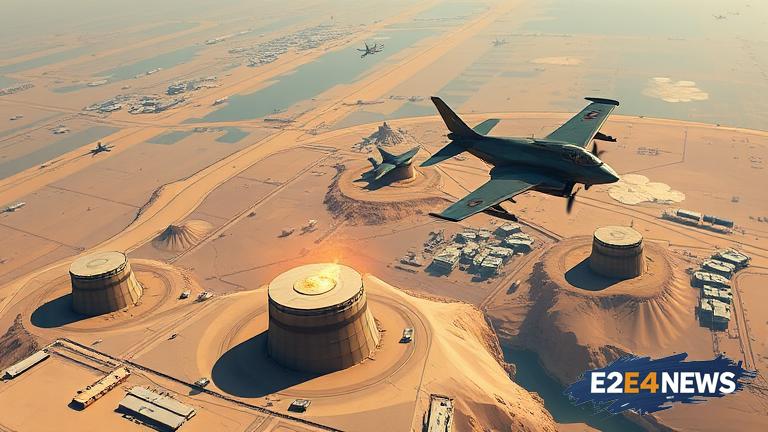In a bold and provocative move, Israeli Prime Minister Benjamin Netanyahu has authorized airstrikes against Iran’s uranium stockpiles, in an effort to cripple the country’s nuclear program. The strikes, which were carried out with precision and stealth, targeted key facilities and infrastructure related to Iran’s uranium enrichment activities. According to reports, the Israeli military used advanced weaponry and tactics to evade Iranian air defenses and strike at the heart of the country’s nuclear capabilities. The move is seen as a significant escalation of tensions between Israel and Iran, which have been simmering for years. Iran has long been suspected of pursuing a nuclear weapons program, despite its claims that its nuclear activities are solely for peaceful purposes. The international community has been trying to negotiate a deal with Iran to limit its nuclear ambitions, but so far, these efforts have been unsuccessful. The Israeli airstrikes are likely to be seen as a major setback for these diplomatic efforts, and may even spark a wider conflict in the region. The Iranian government has vowed to retaliate against the Israeli attacks, and has put its military on high alert. The situation is being closely watched by the international community, with many countries calling for calm and restraint. The United States, in particular, has been trying to navigate the complex web of alliances and rivalries in the Middle East, and has urged all parties to avoid further escalation. Despite these efforts, the region remains on edge, with many fearing that the conflict could spiral out of control. The Israeli airstrikes have also raised questions about the effectiveness of the international community’s efforts to prevent the proliferation of nuclear weapons. The incident has sparked a heated debate about the use of military force to prevent nuclear proliferation, with some arguing that it is a necessary measure to prevent a greater threat, while others argue that it is a reckless and destabilizing move. The situation remains fluid and unpredictable, with many uncertainties about how the conflict will unfold in the coming days and weeks. As the world watches with bated breath, one thing is clear: the Israeli airstrikes against Iran’s uranium stockpiles have marked a significant turning point in the region, and will have far-reaching consequences for the Middle East and beyond. The international community will be closely monitoring the situation, and will be working to find a diplomatic solution to the crisis. However, the path forward is uncertain, and the risk of further escalation remains high. In the meantime, the people of the region remain on edge, bracing themselves for the potential consequences of the conflict. The Israeli government has defended its actions, saying that they were necessary to protect the country’s security and prevent a nuclear threat. However, the Iranian government has condemned the attacks, and has vowed to take revenge against Israel. The conflict has also sparked a wider debate about the role of the international community in preventing nuclear proliferation, and the use of military force to achieve this goal. As the situation continues to unfold, one thing is clear: the Israeli airstrikes against Iran’s uranium stockpiles have marked a significant escalation of the conflict, and will have far-reaching consequences for the region and beyond.
